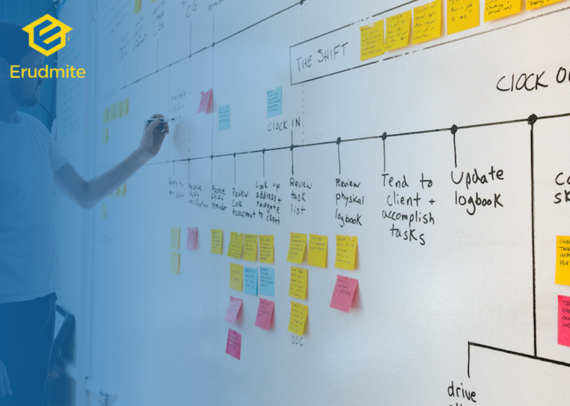
AI in Education: The Canary in the Coal Mine
Education has always been one of the first sectors to reflect global change. Today, it’s undergoing a seismic shift. Artificial Intelligence (AI) has moved from being an optional tool to a central force shaping how students learn, how teachers teach, and how institutions operate.
- Personalised learning: AI systems adapt pace and difficulty to each learner.
- Generative content: Tools like ChatGPT produce essays, summaries, and even teaching materials.
- Integrity challenges: Universities are rethinking how they assess originality, critical thinking, and true mastery.
AI is no longer an “add-on.” It’s woven into the very fabric of education. But here’s the bigger truth: what we see in classrooms today is just a small preview of the transformation sweeping every other industry.
The Ripple Effect of AI Across Industries
1. Business & Finance
AI-driven algorithms now handle everything from fraud detection to automated trading. Virtual assistants are replacing call centres. Banks don’t just need analysts anymore — they need AI strategists and cyber defenders to protect against AI-powered fraud.
2. Healthcare
AI scans medical images, predicts patient outcomes, and optimises hospital workflows. Yet, if those systems are breached, the consequences could be life-threatening. Healthcare cybersecurity specialists are now as vital as doctors in protecting lives.
3. Creative Industries
Generative AI designs logos, composes music, and even scripts films. But it also raises urgent questions around originality, copyright, and misinformation — creating parallel opportunities in AI governance, digital law, and ethical oversight.
4. Governments & Infrastructure
National security has expanded beyond borders to digital frontlines. AI is deployed in defence, transport systems, and elections. Cyberattacks on power grids or airports can paralyse a nation. In this new world, cybersecurity professionals are the invisible shield of national security.
In short: AI is building the future. Cybersecurity ensures the future doesn’t collapse.
AI and Cybersecurity: Two Sides of the Same Coin
- AI needs protection: The smarter our systems get, the more attractive they are to attackers.
- Cybersecurity needs AI: Defence tools now use AI to predict, detect, and neutralise attacks faster than humans ever could.
- Both are cross-industry: From hospitals to luxury brands, every sector requires innovation plus protection.
For students, this means you’re not training for one niche. You’re preparing for a career that stays relevant everywhere.
The Career Case: Why Students Should Care
Numbers speak louder than promises.
- AI market growth: Forecasts predict AI will surpass $1.5 trillion globally by 2030.
- Cybersecurity spending: Estimated to exceed $250 billion by 2026.
- Job demand:
- AI Specialists in the UK: £50,000–£90,000 average salaries, with shortages across industries.
- Cybersecurity Consultants in the UK: £45,000–£85,000, often tied to critical infrastructure and government projects.
- Global shortage: Over 3.5 million unfilled cybersecurity roles worldwide (2025 estimate).
- AI Specialists in the UK: £50,000–£90,000 average salaries, with shortages across industries.
Unlike some fields where automation replaces workers, AI and cybersecurity create more jobs than they eliminate. The demand outpaces the supply — and that’s where students have an edge.
Why Students Should Take This Seriously
- AI is not optional — it will shape every career, whether you’re in finance, healthcare, design, or law.
- Cybersecurity failures cost billions — making skilled defenders indispensable.
- Global mobility — these skills are portable. An AI engineer in London is just as valuable in Dubai, Singapore, or Toronto.
- Career resilience — AI and cybersecurity professionals remain relevant regardless of market fluctuations.
Real-World Examples of AI & Cybersecurity in Action
- Dubai’s AI Strategy 2031: The UAE is positioning itself as a global hub for AI, with government services already adopting machine learning and predictive analytics.
- UK’s NHS AI Lab: Using AI to reduce waiting times and predict patient care needs. At the same time, the NHS invests heavily in cybersecurity to protect sensitive medical records.
- Bharti Airtel, India (2025): Launched an AI-powered fraud detection system, the first of its kind in telecoms, proving how AI and cybersecurity must evolve together.
These aren’t experiments. They’re live transformations shaping industries — and they need trained talent to sustain them.
Education Pathways: Where Students Can Begin
Not every student needs to become a coder or security engineer overnight. The beauty of this field is that there are multiple entry points.
- Undergraduate routes: Perfect for students who want to build a strong technical foundation early.
- Postgraduate routes: Ideal for those with IT backgrounds who want to specialise and advance.
- Bridging options: For non-IT students, foundation programmes and CPD certifications can pave the way into advanced study.
By combining AI innovation and cybersecurity defence, you future-proof your career.
The Erudmite Perspective
At Erudmite, we guide students not just toward popular degrees, but toward future-proof careers. That’s why we emphasise AI and cybersecurity in our counselling:
- Career counselling in Dubai: Helping students from UAE, India, Nigeria, and beyond align with the UK’s strongest tech programmes.
- Webinars with industry leaders: Alumni and professionals share real hiring insights.
- Global employability focus: We connect education choices with careers that stay relevant across borders.
Our philosophy is simple: don’t chase yesterday’s degrees — prepare for tomorrow’s industries.
Where to Begin: Three Courses That Put You Ahead
If you’re serious about entering AI or cybersecurity, the right academic programme gives you a powerful head start. At UWS London, three courses stand out for their career relevance and industry alignment:
- BSc (Hons) Data Science and Artificial Intelligence
Build an undergraduate foundation in data science, machine learning, and AI applications — equipping you for one of the fastest-growing industries in the world. - BEng (Hons) Cyber Security
Develop technical expertise in cybersecurity, digital defence, and secure system design — preparing you to tackle global cyber threats. - MSc Cyber Security
A postgraduate programme for students with IT backgrounds ready to specialise in advanced cybersecurity roles across critical industries.
These aren’t just degrees — they’re launchpads into industries shaping the future, offering both academic credibility and practical skills employers are desperate to hire.
Conclusion:
AI is the engine of tomorrow’s economy. Cybersecurity is the seatbelt. Together, they represent the safest, smartest investment a student can make in 2025.
For international students — whether you’re studying in the UK from the UAE, India, Nigeria, or Sri Lanka — this is your moment to step into careers that will stay relevant for decades.
The choice isn’t between AI and cybersecurity. The choice is whether you’ll be a bystander to change — or one of the people shaping it.
FAQs
1. Do I need an IT background to study these fields?
Not always. Undergraduate AI and cybersecurity programmes at UWS London are designed for students starting fresh, while MSc Cyber Security requires prior IT knowledge.
2. Are AI and cybersecurity jobs limited to tech companies?
No. Every sector — from healthcare to finance to government — needs these skills.
3. Which field is growing faster, AI or cybersecurity?
Both. AI drives innovation, cybersecurity protects it. The demand is explosive in both areas.
4. Are these careers globally mobile?
Yes. AI and cybersecurity skills are valued worldwide, offering strong opportunities across continents.
5. What’s the first step as a student?
Start with foundational degrees or certifications, and layer on specialisations. Explore UWS London’s AI and cybersecurity courses as strong entry points.






